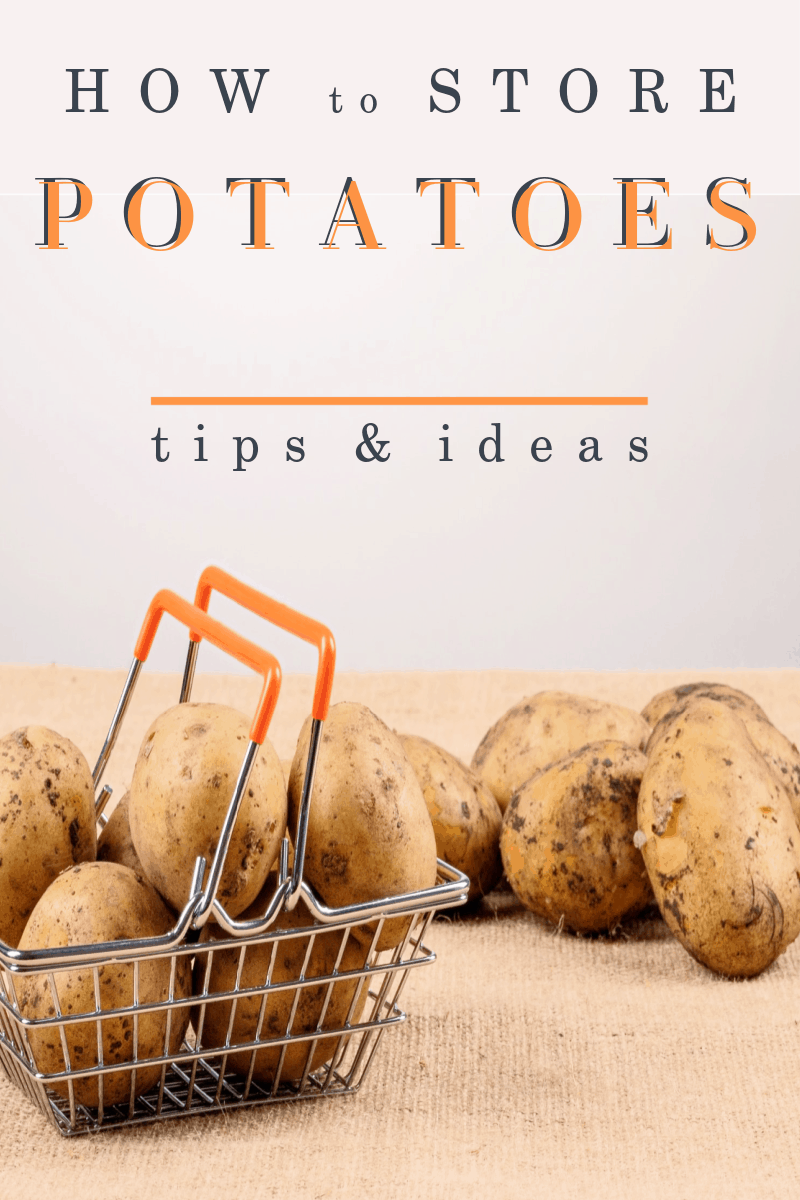Storing potatoes properly is essential for maintaining their freshness and flavor. In this comprehensive guide, we will explore the best practices for how to store potatoes to ensure they remain in optimal condition for as long as possible. Potatoes are a staple in many households around the world, and understanding the right storage techniques can help reduce waste and save money.
In the following sections, we will discuss the various factors that affect potato storage, the ideal conditions for keeping them fresh, and tips for preventing spoilage. Whether you grow your own potatoes or purchase them from the store, knowing how to store potatoes correctly is crucial for preserving their quality.
Let’s dive into the details of how to store potatoes effectively, so you can enjoy their deliciousness for weeks or even months to come.
Table of Contents
- Understanding Potatoes
- Ideal Storage Conditions for Potatoes
- How to Store Potatoes
- Common Storage Mistakes
- How to Use Stored Potatoes
- Signs of Spoilage in Potatoes
- Frequently Asked Questions
- Conclusion
Understanding Potatoes
Potatoes are tuberous crops that belong to the Solanaceae family. They are rich in carbohydrates and essential nutrients, making them a popular choice for many diets. Here are some key points about potatoes:
- There are many varieties of potatoes, including russets, reds, yellows, and fingerlings.
- Potatoes are harvested during different seasons, and their storage needs can vary based on the type.
- Understanding the characteristics of different potato varieties can help you determine the best storage methods.
Ideal Storage Conditions for Potatoes
To store potatoes effectively, it’s important to create the right environment. Here are the ideal conditions for potato storage:
Temperature
- The ideal temperature for potato storage is between 45°F to 50°F (7°C to 10°C).
- Storing potatoes at higher temperatures can cause them to sprout and spoil more quickly.
Humidity
- Potatoes require a humid environment, ideally around 90% humidity.
- Too little humidity can lead to shriveling, while too much can cause rot.
Light Conditions
- Potatoes should be stored in a dark place to prevent them from turning green and producing solanine, a toxic compound.
- Use opaque bins or burlap sacks to block out light.
How to Store Potatoes
Here are step-by-step instructions on how to store potatoes properly:
- **Choose the Right Location**: Select a cool, dark, and well-ventilated area such as a pantry, basement, or cellar.
- **Prepare Potatoes**: Remove any potatoes that show signs of spoilage or damage. Do not wash them before storage, as moisture can promote rot.
- **Use Proper Containers**: Store potatoes in breathable containers such as burlap sacks, cardboard boxes, or mesh bags.
- **Check Regularly**: Inspect stored potatoes weekly for signs of spoilage and remove any affected potatoes immediately.
Common Storage Mistakes
Avoid these common mistakes to ensure your potatoes remain fresh:
- **Storing in the Fridge**: Avoid refrigerating potatoes, as cold temperatures can alter their taste and texture.
- **Leaving Them in Plastic Bags**: Plastic bags can trap moisture and lead to rot.
- **Storing with Onions**: Potatoes should not be stored with onions, as the gases emitted can lead to spoilage.
How to Use Stored Potatoes
Using stored potatoes effectively can enhance your meals:
- **Prioritize Fresh Potatoes**: Use the oldest potatoes first to avoid wasting them.
- **Incorporate in Various Dishes**: Potatoes can be used in soups, stews, casseroles, and as side dishes.
- **Learn Cooking Techniques**: Master cooking methods such as boiling, baking, and frying to make the most of your stored potatoes.
Signs of Spoilage in Potatoes
Being able to identify spoiled potatoes is crucial:
- **Sprouting**: While sprouting potatoes are still safe to eat, they should be used soon, and the sprouts should be removed.
- **Green Skin**: If potatoes have green patches, they should be discarded to avoid solanine poisoning.
- **Softness or Wrinkling**: These are signs that potatoes are past their prime and should not be consumed.
Frequently Asked Questions
Here are some common questions related to potato storage:
- **Can I freeze potatoes?**: Yes, but they should be blanched first to maintain texture.
- **How long can I store potatoes?**: Properly stored potatoes can last from a few weeks to several months.
Conclusion
In conclusion, knowing how to store potatoes properly can significantly extend their shelf life and maintain their flavor. By following the guidelines outlined in this article, you can enjoy fresh potatoes for a longer time and reduce waste. Don’t hesitate to leave a comment below if you have further questions or share your own tips for potato storage. Happy cooking!
Thank you for reading! We hope you found this guide useful and invite you to explore more articles on our site related to food storage and cooking tips.
You Might Also Like
How To Turn Off The Cigarette Lighter In Your Jaguar F-Pace With The KeyExploring The Enigmatic Character Of Remus J. Lupin In Harry Potter
Exploring German Names And Surnames: A Comprehensive Guide
Understanding Small Humidifiers: Benefits, Types, And Best Practices
The Sleep Experiment: Unveiling The Science Of Sleep And Its Impact On Our Lives
Article Recommendations
- Dinosaur Dung
- Kamila Valieva
- Daryl Hannah
- Claudine Blanchard Crimes
- Legal Seafood Recipes Crab Cakes
- Lola Consuelos Weight Loss Ozempic
- Michael Jordan Tequila Reposado
- Water Softener Overflowing Brine Tank
- Brand Building_0.xml
- Talulah Riley
/farmer-picking-up-potatoes-870863742-5bca5fb44cedfd0026b17aaf.jpg)

